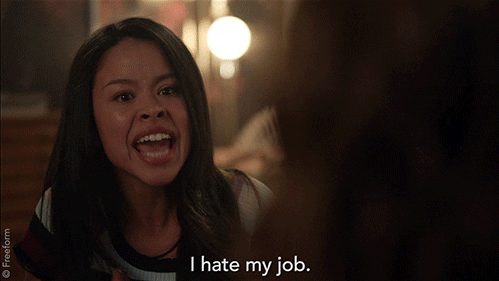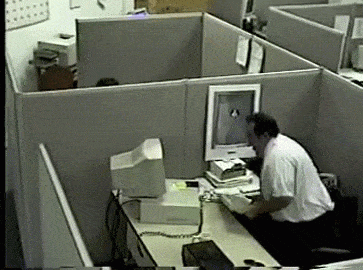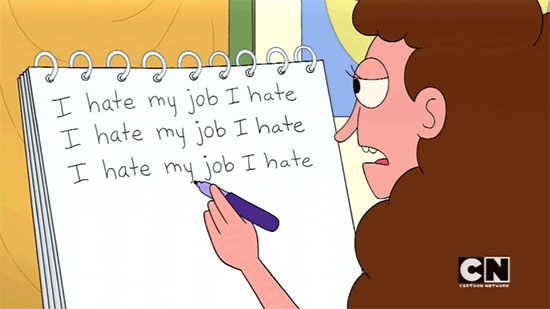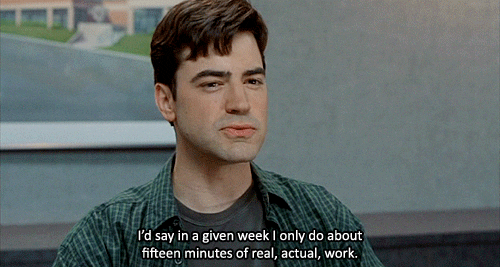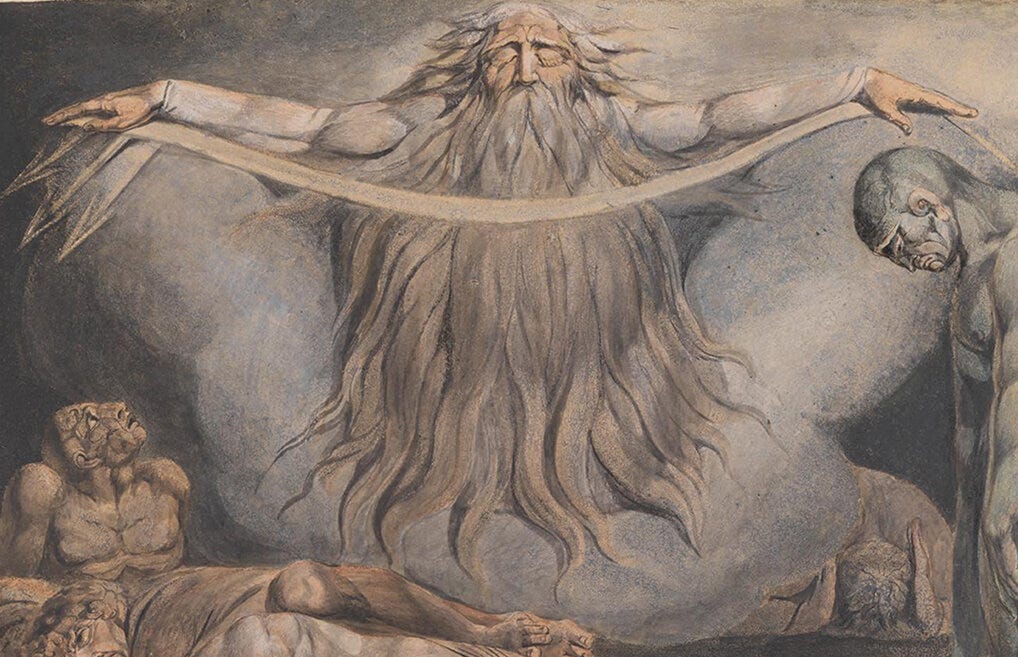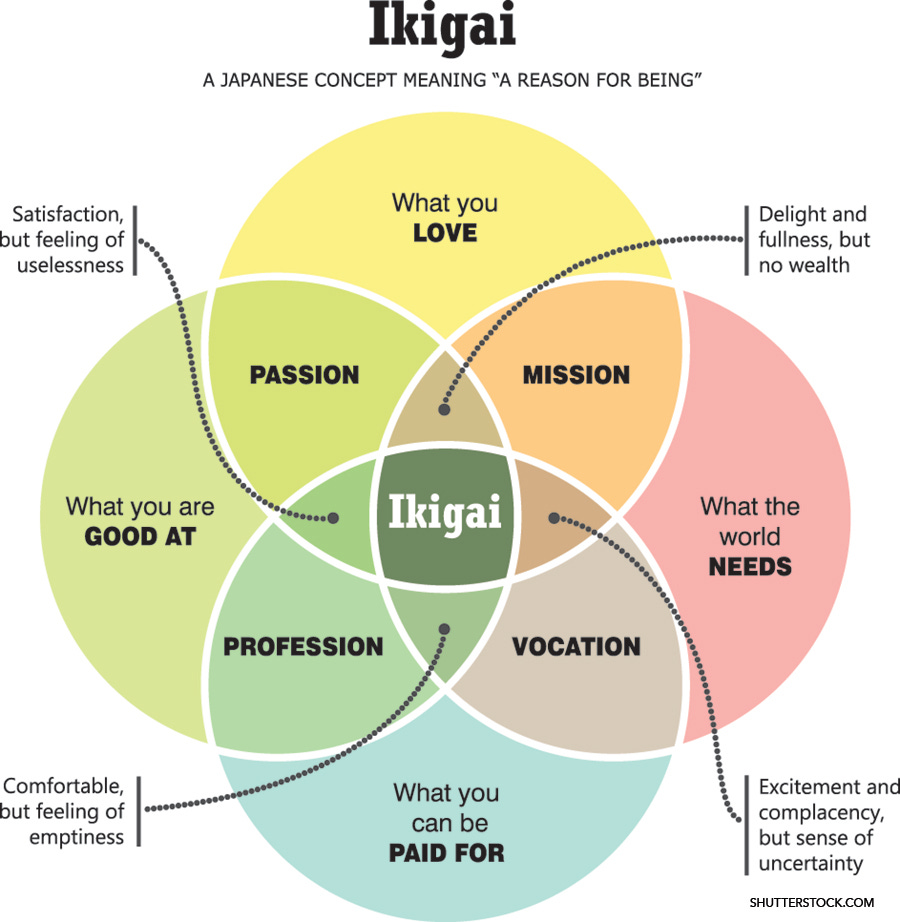finding your life's purpose
how a powerful framework from japanese philosophy can help you move from reactionary to purpose-driven living
I’m no stranger to the painful existential feelings of wondering what the hell I’m meant to do with my life. Why the hell am I here? Is this all there is?
Is life just an endless cycle of waking up, dragging myself to a job to do work for a company that doesn’t give a shit about me, and completing tasks that are ultimately meaningless?
Bullshit jobs
In 2018, anthropologist David Graeber wrote a book called “Bullshit Jobs: A Theory.” According to Graeber, A bullshit job or pseudowork is “meaningless or unnecessary wage labor which the worker is obliged to pretend to have a purpose.”
In his book, Graeber challenges us as readers to ask ourselves:
If your job disappeared tomorrow, would the world be a better or a worse place? Would anyone even notice it was gone?
Through his research, he found that when people are asked this question, the terrifying answer is that about 40% of people say that if their job disappeared tomorrow, no one in the world would notice it had gone. Worse yet, some people even felt that the world would actually be a better place if their job disappeared.
The psychologically damaging impact of meaningless work
It is inhumane and torturous to expect human beings to do work they know in their heart of hearts is utterly pointless.
Humans are meaning-making creatures. It’s just how we’re wired. We seek meaning in abstract paintings, tea leaves, and even reality TV shows. If we aren’t able to spin a story that makes it sound like what we’re doing for a living is at all worthwhile, it’s no surprise so many of us feel like life feels hopeless.
American Pulitzer Prize-winning writer and political activist Upton Sinclair once said:
‘It is difficult to get a man to understand something when his salary depends on his not understanding it.’
This quote often comes to mind when I think of how many people suppress the true meaninglessness (and sometimes harmfulness) of what they spend the vast majority of their lives doing/being paid for.
The fact that 40% of people are open to admitting that their job likely contributes nothing meaningful to the sum of human happiness is a horror.
Even if, for some reason, this almost half of the working population was wrong, and their jobs somehow did have a meaning, and that meaning was for some reason utterly obscure to the person doing it, that would still be dystopian. Imagine what this is doing to our psyches as a collective. Let it really sink in.
Job hopping
Many of us live our lives in a purely reactionary way. Jumping from job to job, randomly selecting a focus area in university/college based less on a deep inner calling or soul-inspired vision and more on societal expectations and what is required to survive in the cages and systems we were forced into.
My first job was when I was 15, working as a fry cook at my local Hamburger Stand. I later found out that it wasn’t even legal for someone underage to manage this part of the job (I still have physical scars from the hot oil that splashed back onto my arms and mental ones from coming home smelling like a chicken nugget for months on end.)
Since then, I’ve worked in retail (American Eagle Outfitters), went to beauty school (I’m an actual beauty school dropout - cue the song), changed majors in college three times (only to finally major in communications, the waste-basket of majors), dropped out of a master’s program for marriage and family therapy, spent a short time in the sex work industry (long story), and more recently spent ten years working in B2B SaaS in the Customer Success field.
I know what it’s like to struggle working paycheck to paycheck, drowning in credit card debt. I also know what it’s like to make six figures doing work I didn’t believe in, selling meaningless software solutions that my clients didn’t even use. Both of these realities sucked. Both of these realities were detrimental to my mental health.
There has to be more to life… right?
This isn’t the way the world is supposed to work. Regardless of how you feel about it, capitalism is meant to produce hyper-efficiency. The general idea of capitalism is to reduce labor to the lowest possible cost and then remove workers entirely from the production process. It is certainly not meant to work by having nearly half of all job roles involved in work that doesn’t need to be done and wouldn’t be missed if it wasn’t.
English economist and philosopher John Maynard Keynes predicted in the 1930s that in a generation or two, people would need to get used to the idea of what he called “technological unemployment,” meaning that technology was progressing so fast that soon a large proportion of the population would simply not be needed to do work at all. Keynes believed this would mean individuals living in a society of ‘technological unemployment’ would need to find ways to meaningfully occupy their time outside of employment.
The concept of “school” was created because there was no longer an economic need for children to work (helping on farms, family businesses/trades, etc.) This led to many unsupervised young people wandering around the streets, which leaders deemed to be not the greatest idea. They decided shoving kids into a single room supervised by teachers would be much better.
Keynes is generally believed to be utterly wrong about how capitalism would turn out (shorter work weeks, fewer people working, etc.) However, given the large number of people now working in “bullshit jobs,” maybe he wasn’t as far off as initially believed.
However, rather than people being given a life of leisure, they’ve been forced into a living hell. They are performing totally meaningless work, feeling the pressure to complete more tasks than one person can possibly accomplish, all while being chronically online/available, and even sometimes feeling as though they have to pretend to be busier than they actually are out of fear of losing their bullshit jobs.
We have created so many empty, meaningless, soul-destroying jobs, not because we need them to be done, but because our moral compass says that if you do not work, you should not eat. And so this twisted morality in an age of abundance means almost everyone now has to play the game of appearing to work, even if this work is increasingly meaningless.
The problem is that it serves the system if people work, and people benefit from it since they are paid for this work, often in inverse proportion to the usefulness of the work they perform, and also, we punish those who don’t work with humiliation and poverty. So, work continues to be seen as good, even while it becomes increasingly a horrible, meaningless drudge.
We really do need to do something about this whole job thing. We are working more and more for less and less reason and meaning. We have the technology to give virtually everyone on the planet a meaningful and worthwhile life, and one where they could afford to explore the human condition in ways that would be the definition of ‘meaningful.’ And yet we seem to be focused on achieving the exact opposite.
If there were ever a time on the planet when finding our true purpose was needed, now would be that time. So how can we peel back the layers and discover why we are here and what we are really supposed to be doing?
You might not be able to change the world, but you can move towards changing your reality. You do not have to spend your entire life performing meaningless work in your bullshit job.
How? Enter the Japanese concept of Ikigai.
What is Ikigai?
Borrowing concepts from other cultures can be a way to open our minds and find new ways of addressing age-old problems, as well as bridging the gap between personal and spiritual growth.
Many ancient indigenous cultures took time to honor the question of purpose through ceremony, vision quests, and rites of passage to help reveal the essential role that each member was born to play in the greater tribe and story of life; However, the space and reverence for this question does not always seem to exist today.
American mythologist and author Joseph Campbell shared his view on fulfilling our purpose when he said,
“My general formula for my students is, ‘Follow your bliss.’ Find where it is, and don’t be afraid to follow it.”
For many people, striving to find their purpose in life can resemble a winding quest filled with many twists and wrong turns. Some blindly follow passions that aren’t based in reality, then wind up feeling discouraged when their dreams don’t materialize. Others resign themselves to careers that bring them money and status but aren’t fulfilling. In both cases, over time, their sense of purpose can begin to fade. This was certainly true for me. Does it resonate with you?
One international study found that people who have a sense of purpose in life are at a lower risk of death and heart disease. Why? Researchers found that those who feel purpose often have healthier lifestyles. They are more motivated and resilient, which protects them from stress and burnout.
While individuals from the U.S. defined “purpose” as being “useful to others,” those from Japan were powered by a deeper, more expansive interpretation of happiness.
Ikigai is a Japanese philosophy that embraces a deeper and more expansive interpretation of happiness. The word “Ikigai” means “life purpose. It refers to defining your meaning in life in relation to your talents, passions, and profession, as well as what you can give to the broader world.
Connecting the spiritual with the practical
Ikigai is a lifestyle that strives to balance the spiritual with the practical.
This balance is found at the intersection where your passions and talents converge with what the world needs and is willing to pay for.
Ikigai is often depicted in diagrams similar to the one below:
The Ikigai diagram is built around the following questions:
· What do you love?
· What are you good at?
· What does the world need from you?
· What can you get paid for?
Ikigai compounds two smaller Japanese words: “iki” (meaning “life”) and “gai” or “kai” (meaning “worth”). While the concept has a long history in Japan and other parts of Asia, the term recently resurged in popularity throughout the Western world with the publication of Héctor García and Francesc Miralles’ 2016 book, Ikigai: The Japanese Secret to a Long and Happy Life.
Obviously, having a long and happy life depends on many factors, such as eating well, exercising, getting enough sleep, and having positive people around you. However, the Japanese have a proverb that perfectly explains the importance of finding your purpose or ikigai:
“Only by remaining active will you wish to live for a hundred years.”
The fundamental truth of Ikigai is that everything is connected.
According to the Japanese, everyone has an ikigai. To find it often requires deep self-inquiry and a lengthy ‘search of self.’ This search is highly regarded in Japanese. Sadly, for those of us here in the West, not so much.
How to find your ikigai
Now that we’ve covered the psychological impact of meaningless work and the overall philosophy of ikigai, let’s begin tying all of this together and work towards finding your true calling.
Below is a collection of questions, journal prompts, and resources to kick-start your journey. To unlock them, you’ll need to become a paid subscriber of my Substack. By subscribing, you’ll also gain access to future paid articles as well as my emotional alchemy pocket guide.




